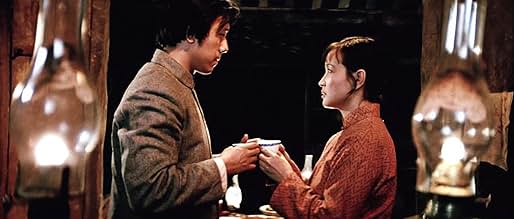"The commendable cast also includes Zheng Zaishi's granary director Gu Yanshan, a war hero wound in the front line, yet he must inure humiliation, calumny and disillusion in the peace time, Zheng emotively personifies a benevolent figure with all his might, his scenes of crapulous reminiscence and ebullition is among the most puissant. As for the two leads, Liu Xiaoqing doesn't shy away from the cynosure of Xie Jin's attentive camera, she comports herself with adequate dignity and dithery. Her Yuyin is spunky in the first half, who wears the pants in the family, then stricken down and devolves into a damsel in distress in the second half, passively accepts her kismet until gets revitalized by a new man in her life."
-




















